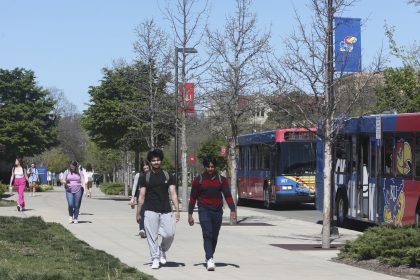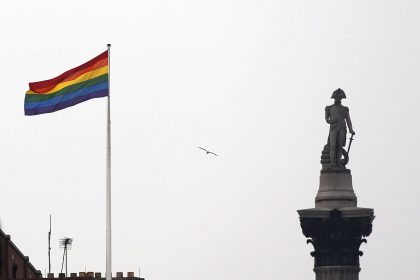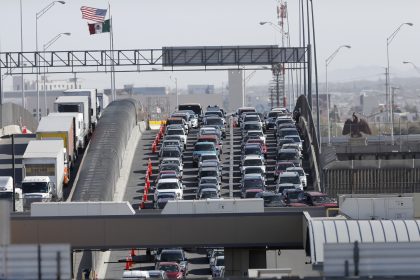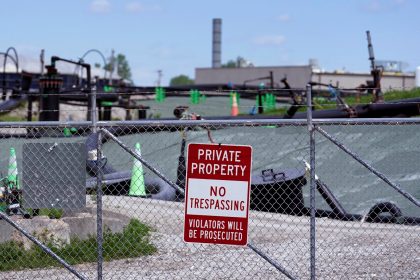Centuries After Native American Remains Were Dug Up, They Are Returned for Reburial in Illinois
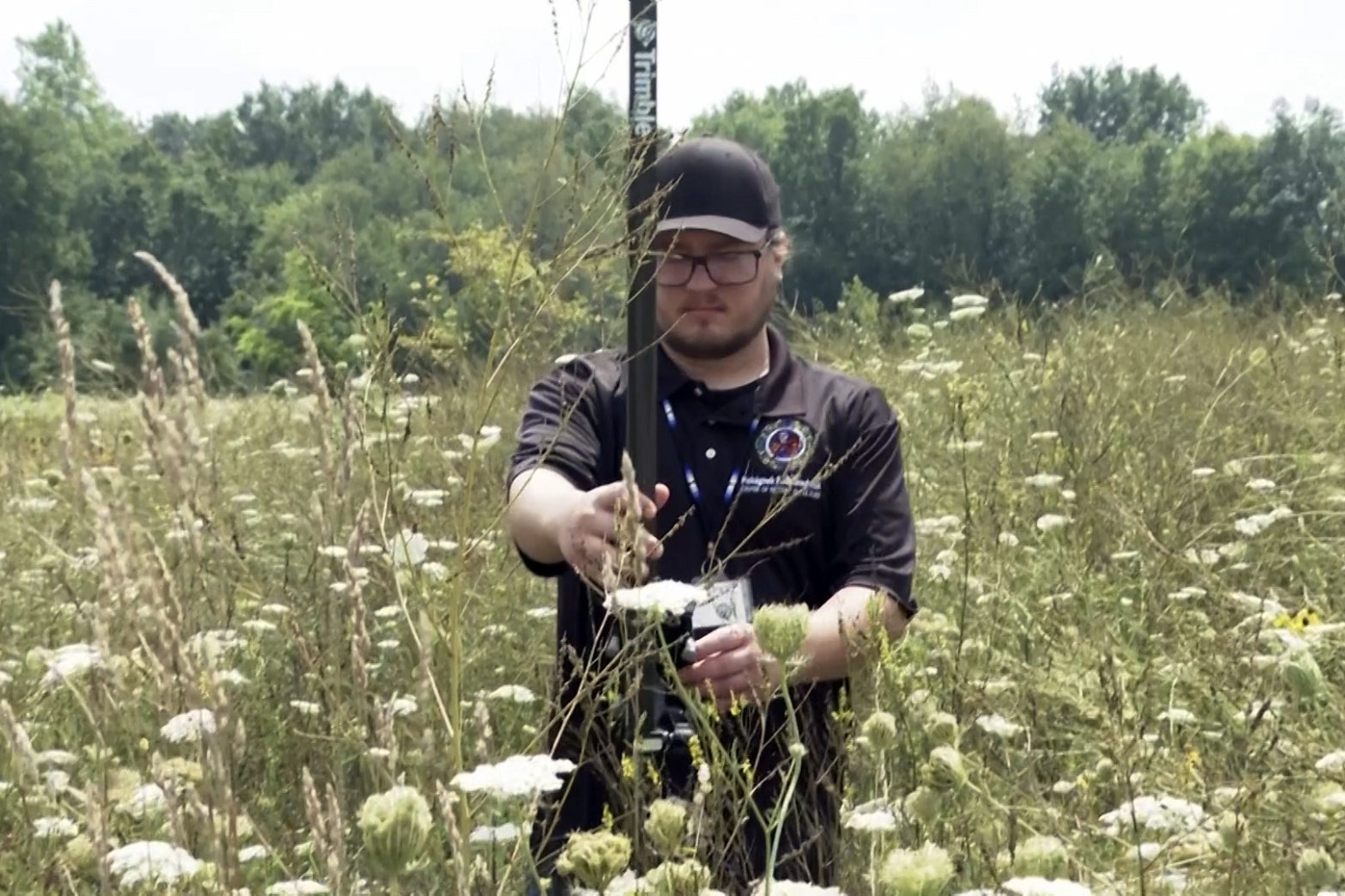
SPRINGFIELD, Ill. (AP) — For centuries, Europeans carving up the prairie to suit their own idea of settlement dug up the graves of Native Americans as they conquered lands and pushed tribes to the West.
Now, Native Americans whose ancestors’ remains ended up held for study in sterile, nondescript boxes on shelves in educational facilities or displayed in cultural locales hope a new Illinois law will speed their recovery for proper reburial in their homeland.
“I always have a bit of unease because I know if I’m going to a university or to a museum … that chances are pretty high that we’ve got some ancestors sitting in a basement or in a closet somewhere,” said Raphael Wahwassuck, tribal preservation officer for the Prairie Band Potawatomi Nation in Mayetta, Kansas. “I hope that this (law) will help ease those concerns, knowing that we are working on correcting that and taking care of our ancestors to put them in a good resting place.”
Illinois Gov. J.B. Pritzker signed The Human Remains Protection Act last month, which updates a rudimentary 1989 state statute. It also complements a federal law adopted a year later, the Native American Graves Protection and Repatriation Act. It requires the return of human remains and funerary, sacred and cultural objects unearthed in the past 200 years by plows and bulldozers, by archeologists, or by profiteering marauders to the associated tribe.
Key to the measure is first-time authority for tribes to rebury recovered remains in Illinois, which they much prefer to relocating them to states to which the U.S. government forced their relocation nearly two centuries ago.
The Illinois State Museum, which holds remains from about 7,000 individuals, is prepared to reunify 1,100 of them with their tribes, according to Brooke Morgan, the museum’s curator of anthropology. Overall, institutions in Illinois can identify nearly 13,000 individuals that must be repatriated.
What the soil produced often ended up in scholarly institutions across the state, from Chicago’s Field Museum to Southern Illinois University, as well as the state museum.
Illinois is the nation’s fifth-largest repository of human remains, according to the National Park Service, which administers the repatriation program. And large numbers of remains recovered from Illinois are held by institutions in other states. Nationally, the remains of nearly 209,000 individuals have been reported to the federal government and must be surrendered to descendants.
Information about past cultures and lives lived gleaned from anthropologists’ study of the remains is not without merit, Morgan said, but research must be “ethically informed.”
“While there’s a lot that can be learned, it’s not it’s not without consequences or outcomes that could be damaging to modern communities,” Morgan said.
The law also toughens monetary penalties, including required restitution, for disturbing human remains and items buried with them or for displays — something the Illinois State Museum did at Dickson Mounds in Lewistown, 200 miles (322 kilometers) southwest of Chicago, before disbanding the feature in 1992.
While repatriation in Illinois during the federal law’s first three decades has been sluggish, at best, in 2020, the late Cinnamon Catlin-Legutko, the museum’s director, pushed her staff to gauge interest with Native American tribes in repatriating the Dickson Mounds holdings.
Now, the museum is on the cusp of returning the remains of 1,100 individuals from Dickson Mounds to 10 tribes whose ancestors were laid to rest there, Morgan said. The process has wrought stronger relationships with affected tribes, which could could prove critical as the new state law requires consultation — meaningful dialog among holding institutions and tribes about handling and transferring remains — rather than simple notification.
“It can be emotionally taxing. It can be really traumatic to learn about how their ancestors have been studied or how they’ve been housed or how they’ve been cared for or not cared for,” Morgan said.
What scholars now call a period of ethnic cleansing began with President Andrew Jackson’s signature on the Indian Removal Act of 1830. It forced indigenous people to move west of the Mississippi River, clearing the eastern United States for white settlers, particularly for expansive cotton cultivation in the south.
Prior to the new law, “repatriation” meant turning remains over to tribes who had little choice but to take them back to the states to which they were forcibly removed.
“The tribes that I talked to — one, specifically, the Cherokee of Oklahoma — said, that is like recreating the Trail of Tears,” said the legislation’s sponsor, Rep. Mark Walker, a Democrat from the Chicago suburb of Arlington Heights. He was referring to the 1838-39 westward death march which claimed the lives of 4,000 Cherokee.
Walker said the Cherokee told him, “’Our ancestors were buried where our ancestors wanted to be buried. And now you’ve dug up their bones and you’re going to bring them to where we were forced to go.”
Walker said negotiators have compiled a list of 30 potential sites for burial. Tribes will ultimately choose which sites will be used.
Matthew Bussler, tribal historic preservation officer for the Pokagon Band of Potawatomi in Dowagiac, Michigan, said the practice and ceremony of final rites differs by tribe. Generally, he said, it is critical to see that ancestors are returned “to the womb of Mother Earth” not only so they may continue their journey in the hereafter, but to “redeem all of the pain and the suffering” of their tribe, especially their descendants.
There are costs associated with repatriation, of course, for the tribes as well as the state. The law provides money for travel and other expenses the tribes incur. The account is partially funded by fines for desecrating burial grounds, including for the first time, restitution to cover collecting, cleaning and reburying remains illegally taken, just as other remains before them had been for centuries.
“Those human remains were never treated as human beings…,” Bussler said. “Those who had been deceased for hundreds of years who are just being found, or your grandmother who just passed away — we need to treat them all with utmost respect.”


















